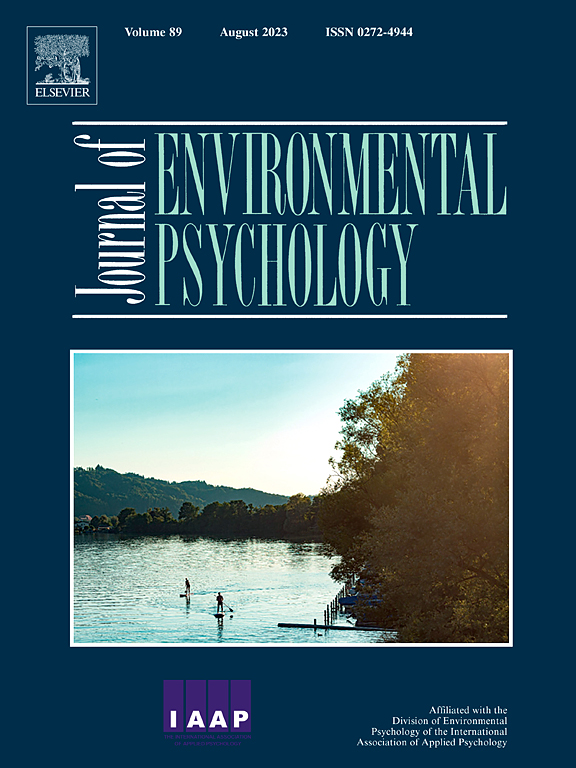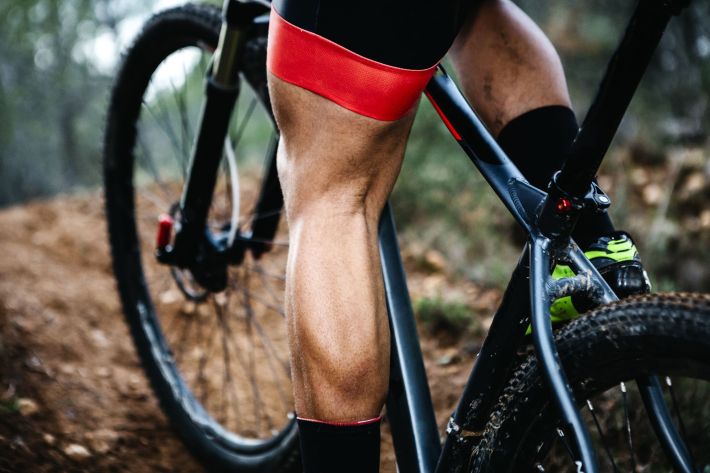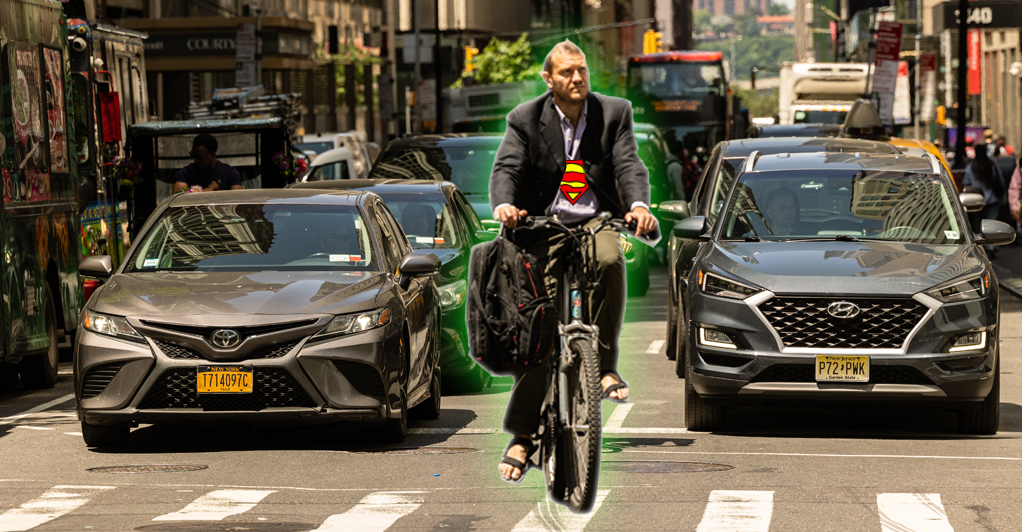Cyclists are better people than drivers not only because of they get exercise or help the environment — they also have better ethics, a new study suggests.
The concept is pretty simple, argue the authors of the new report, "Orientation Towards the Common Good in Cities," just published in the Journal of Environmental Psychology: Drivers locked inside "isolated mobility" have little or no "interaction with the spatial environment" — and that isolation "can reinforce individualistic behaviors and cause drivers to neglect collective actions."

Meanwhile, cyclists directly connect to the environment around them. And an "emotional attachment of people to their neighborhood is considered a mediator for civic activities." As a result "people who move non-motorized, experience a greater orientation towards the common good than people who move motorized."
"Orientation toward the common good" is a fancy way of describing how people feel responsible for others, how people abide by basic rules of society, and how people participate in social and political life and engage in public discourse.
And such an orientation is crucial for social cohesion, albeit tricky to obtain, many studies have found. But cyclists orient towards the common good better than drivers.
The study of residents of Germany builds on previous research that showed that increased walkability and bikeability improved the orientation towards the common good. But it also shows how difficult it is to achieve the "common good effect" of cycling in a world so oriented around the car, which is just so awful for people's mental and physical health. (See also, road rage.)
Even in Europe, car trips are common (57 percent of trips in Germany and 49 percent of trips even in the bike utopia of the Netherlands). In the United States, the car is simply omnipresent, accounting for 80.3 percent of the trips.
Only 6 percent of Americans walk or bike to work.
"Even in cities, where distances are often short and good alternatives are available, private motorized transport is the mode of transport mostly used by the greatest number of people," the study bemoans. "The car therefore dominates public space and has become the dominant norm for urban mobility."
And the car really is basically designed to eliminate contact with the outside world.
Woman gets chased & shot at after honking horn at another driver in Oakland, California.
— BAY AREA STATE OF MIND (@YayAreaNews) October 27, 2023
Her 10 year old daughter was in the back seat.
pic.twitter.com/ClIltV34sC
"Only brief visual contact through the windscreen glass leads to isolated mobility experiences," wrote the study's authors, Harald Schuster, Jolanda van der Noll and Anette Rohmann, all of the FernUniversitat in Hagen, Germany, mentioning cars' deadened sounds and the two-dimensional view of urban spaces (not to mention not even allowing in "the smells of the city"). "This relative isolation can reinforce individualistic behaviors and cause drivers to neglect collective actions."
To prove that cyclists have less individualistic behavior, the researchers analyzed data on how many interactions residents had with social organizations such as schools, churches, arts centers and other clubs or how many times they interacted with charitable organizations or political associations, boycotted a product, volunteered, discussed politics or even wrote a letter to the editor of a newspaper or website.
The study found that frequency of bike use over time had a small positive and significant effect on social organizational participation and on political participation.
"In contrast, the frequency of car use did not have such an effect in any of the models," the authors wrote. "A similar picture emerged for local helpfulness and neighborhood solidarity. Again, a more frequent use of the bike, had a significant positive effect, whereas the use of the car had no significant effect. ... People in urban environments have a greater orientation towards the common good when using bicycles than when using cars."
It's a bit unclear why. The authors say it might have to do with basic "trust" in neighbors with which cyclists directly interact. And that "higher
levels of trust in others increase citizens’ willingness to contribute to the
common good."
"People who travel by bike experience the local infrastructure more directly, recognize social grievances and see people in need of help earlier," they added. "The benefits of cycling over driving are more profound and sustainable than previously thought, underscoring the importance of promoting
green transportation."
And just in case you think this study was funded by a bike manufacturer, it wasn't. "This research did not receive any specific grant from funding
agencies in the public, commercial, or not-for-profit sectors," the authors wrote.







